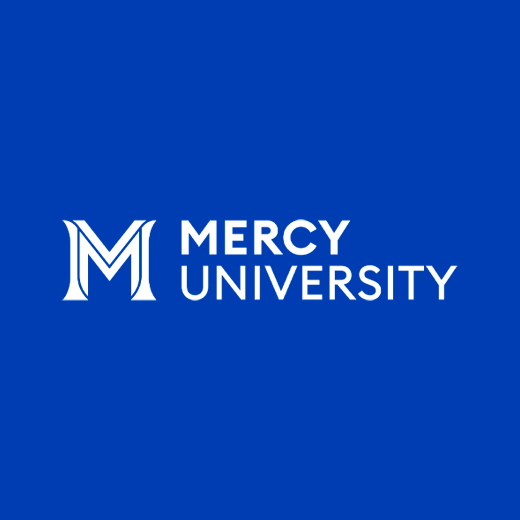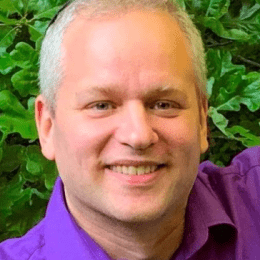
Psychology M.S.
- 36 Credits
- School of Social and Behavioral Sciences
- Online
- Westchester

About the MS Psychology Program
The MS Psychology Program at Mercy University is a 36-credit academic experience that can be completed in 2 academic years. The core components of the program center on theory, research, and field experience. The MS Psychology Program offers classes in a variety of modalities, including: face-to-face, synchronous, asynchronous, and blended formats. Students are free to select classes in formats that work best with their busy lives.
There are two main reasons why students join the MS Psychology Program at Mercy University. The first is for career advancement with their current employer. Several employers encourage their employees to pursue a masters degree and provide incentives to do so. The second reason is to gain a broader depth of knowledge and experience in an effort to build a competitive resume for academic pursuits beyond the masters degree.
One of the cornerstones of the program is a yearlong research project in which students first conduct a thorough literature review, design a research study, and have it approved by the Institutional Review Board. Next, students implement their proposed project by recruiting participants, collecting and analyzing data, and writing up a final research report. In addition, students must complete a practicum requirement that engages students in real-world application of skills. Students may choose to complete their practicum in field settings, teaching, or research.
Join us for our Upcoming Graduate Events
Join us for an upcoming graduate admissions event to learn more about our MS Psychology program and explore how Mercy can help you meet your goals.

Career Opportunities
Graduates of the MS Psychology Program work in a variety of professional settings. Recent graduates have found employment opportunities in the following capacities:
- Research assistant
- Non-for-profit program director
- Mental health technician, mental health worker
- Case manager in human services and substance use settings
- Adjunct college instructor
The MS Psychology Program at Mercy University can be utilized as a steppingstone to a PhD application. Students interested in pursuing a PhD are encouraged to take advantage of the many opportunities that the Program has to offer to strengthen their application to doctoral programs. The MS Psychology Program at Mercy offers for opportunities for students through research with full-time faculty, mentorship in teaching college-level courses, and the application of skills in field settings.
Over the course of the past five years, the MS Psychology Program has several graduates reach their goal of entering PhD programs and have continued their academic pursuits beyond their masters degree at the following institutions:
- George Mason University
- Seton Hall University
- Palo Alto University
- The CUNY Graduate Center
- Montclair State University
- SUNY Albany
- The Chicago School of Professional Psychology
Academic Plans of Study
There are 4 academic plans of study.
The purpose of this academic plan is to allow for the most flexibility and choice in course selection. Students may take courses in a variety of modalities using this plan. Students must complete the required core courses in the program and choose a capstone option - 4 PSYN elective courses (12 credits) and the comprehensive exam or 2 PSYN elective courses (6 credits) and PSYN 709 Masters Thesis Supervision.
The purpose of this academic plan is to allow students to complete the MS Psychology Program remotely through online classes. Students must complete the required core courses in the program and choose a capstone option - 4 PSYN elective courses (12 credits) and the comprehensive exam or 2 PSYN elective courses (6 credits) and PSYN 709 Masters Thesis Supervision.
The purpose of this academic plan is to prepare students for employment following the completion of the M.S. Psychology degree. Students who choose to follow the Professional Academic Plan should complete the required core courses in the program, 4 PSYN elective courses, and the comprehensive exam as the capstone. PSYN 630 Practicum I in Psychology is recommended for the Professional Advising Plan.
2022-2023 M.S. Psychology - Professional Advising Plan
CASAC-T 350-Hour Alcoholism and Substance Abuse Counselor Option In addition to the required courses for the program, students in the Professional Academic Plan may choose to pursue a CASAC-T Credential through the New York State Office of Alcoholism and Substance Abuse Services (OASAS). CASAC-T Credentialed Alcoholism and Substance Abuse Counselor Standardized 350-Hour Education and Training Program at Mercy University is an OASAS Certified Education Training Program. The courses have been approved by OASAS, satisfying the educational requirements for state certification. With the competitive market for counselors and mental health providers, your CASAC-T Certification paves the way for both direct patient care and supervisory positions in the area of substance abuse and addiction.
Students selecting the CASAC-T option must complete the following elective courses and the comprehensive exam as the capstone. The below Counseling courses will be substituted for the 12 credits of Psychology electives. In addition, CNSL 630: Counseling and Ethics will be substituted for PSYN 665: Professional Issues and Ethics.
The purpose of this academic plan is to prepare students for careers in research and academic pursuits beyond the master’s degree. Students who choose to follow the Research and Academic Advising Plan, should complete PSYN 633: Teaching Practicum in Psychology, PSYN 650: Directed Research in Graduate Psychology and Counseling, 1 PSYN elective, and thesis as the capstone (PSYN 709: Masters Thesis Supervision).
2022 - 2023 Psychology - Research and Academic Advising Plan
Program Details & Curriculum
The 36-credit Master of Science Degree in Psychology is organized as follows.
Core Courses: 24 Credits
Electives: 12 Credits
Total: 36 Credits
For a full curriculum listing visit our catalog.
Download a copy of the sequence map for:
- 2025 - 2026 M.S. Psychology - In-Person
- 2025 - 2026 M.S. Psychology - Online
- 2025 - 2026 M.S. Psychology - Research
- 2025 - 2026 M.S. Psychology - Professional
ARCHIVE
- 2024 - 2025 M.S. Psychology - In-Person
- 2024 - 2025 M.S. Psychology - Online
- 2024 - 2025 M.S. Psychology - Research
- 2024 - 2025 M.S. Psychology - Professional
- 2023 - 2024 M.S. Psychology - In-Person
- 2023 - 2024 M.S. Psychology - Online
- 2023 - 2024 M.S. Psychology - Research
- 2023 - 2024 M.S. Psychology - Professional
- 2022 - 2023 M.S. Psychology - In-Person
- 2022 - 2023 M.S. Psychology - Online
- 2021 - 2022 M.S. Psychology - In-Person
- 2021 - 2022 M.S. Psychology - Online
- 2020 - 2021 M.S. Psychology - In-Person
2020 - 2021 M.S. Psychology - Online

The Mercy Advantage
- No GRE Required
- Full or Part-Time Enrollment
- Scheduling is designed to support professionals with multiple responsibilities
- Majority of Courses Offered Online
Want More Info?
We'd like to hear from you! Get more information.
Four-Plus-One Program
The Psychology Program's Four-Plus-One option offers a unique opportunity to qualified undergraduates in Psychology who wish to pursue their master's at an accelerated pace. Students meeting the admission requirements for the MS Psychology degree should apply for the 4+1 in their junior year. In order for students to be considered for 4+1, they must have a 3.0 GPA and a grade of B or better in statistics (PSYN 370). In addition, students must follow and complete the admission guidelines for the MS Psychology program.
If accepted into the 4+1 BS/MS Psychology program, these students may then take six graduate credits each semester of their senior year (a total of twelve credits), which will apply to both their undergraduate and graduate degrees. Upon completing their bachelor's in psychology, these students will be able to complete their master's in psychology within a single year of full-time enrollment.

CASAC-T Certification
Students in the M.S. Psychology are able to pursue a CASAC-T Credential through the Office of Alcoholism and Substance Abuse Services (OASAS).
This credential allows students to be certified and paves the way for both direct patient care and supervisory positions in the area of substance abuse and addiction.
Admissions Requirements
- Baccalaureate degree from an accredited college or university with a grade point average (GPA) of 3.00 or higher. Applicants with a GPA lower than 3.0 may be considered for provisional acceptance. Applicants are required to have completed a minimum of 12 credits in Psychology and a statistics course with a grade of “B” or higher.
- Two (2) detailed written letters of recommendation from instructors in the major area of study or professional contacts. One letter must be from a professor.
- An up-to-date résumé
In a 2–3 page personal statement that addresses the following:
- Describe your interest in studying Psychology as a discipline
- Describe why you are pursuing a Masters in Psychology
- Explain why you have chosen Mercy University to pursue this degree
- Discuss how you plan to use your Master’s degree in Psychology to meet your personal career goals
Statement format
- Times New Roman, 12 pt. font
- 2 pages (minimum) to 3 pages (maximum)
- Double-spaced
** Please note, your personal statement will be used as an indicator of your writing skills. Be sure to check for format, spelling and grammar.**
Frequently Asked Questions
To offer a broad understanding of prominent theories and practices of psychologists who seek to identify, understand, and explain behavior and events in the general and specific populations.
Typically, students become providers of psychological services in the workplace, under supervision, in agencies, hospitals, and other therapeutic environments.
Students in the M.S. Psychology program at Mercy University will be trained to critically evaluate psychological research, design and conduct their own research studies with faculty mentors, and have the opportunity to share their research at professional conferences. Many Mercy University faculty members have ongoing research programs and welcome student involvement.
Yes. There are two main reasons why students choose the M.S. Psychology program at Mercy University. First is to prepare for admission into a Ph.D. program for Psychology. The second is for career advancement.
Contact Kimberly A. Rapoza, PhD, Program Director, at KRapoza@mercy.edu

Degree Requirements
A 3.0 cumulative GPA is required and successful completion of either 36 graduate credits including PSYN 709, Master’s Thesis Supervision or a written comprehensive examination.
MMH-RTC
The Maternal Mental Health Research Training Center (MMH-RTC) is a federally funded research award with the Human Services and Resources Administration (HRSA) under the Maternal Health Research Network (MH-RN) for Minority Serving Institutions (MSIs). The overarching goal of this grant initiative is to build research capacity at Mercy University, a federally designated Hispanic Serving Institution (HSI) through a joint collaboration between the graduate Occupational Therapy (School of Health and Natural Sciences) and Psychology (School of Social and Behavioral Sciences) programs.

Student Benefits
- Enhanced training in research methodology
- Active engagement in mentored research activities
- Direct collaboration with community agencies and mothers in exploratory research
- Have an impact on maternal mental health outcomes among underrepresented groups
- MMH-RTC Student scholars will earn up to a $10,000 stipend per year
Full-Time Faculty
Nadia N Ramjit
- MH 201
- N.Ramjit@mercy.edu
Faculty Emeritae/i
Part-Time Faculty
Dana J Manzella
- MaH 210
- dmanzella1@mercy.edu
Albany Perez
- BX-4227
- aperez10@mercy.edu
Admissions Counselor

Debra E Greig
- Main Hall 216B
- DGreig@mercy.edu
- 914-674-7462






































